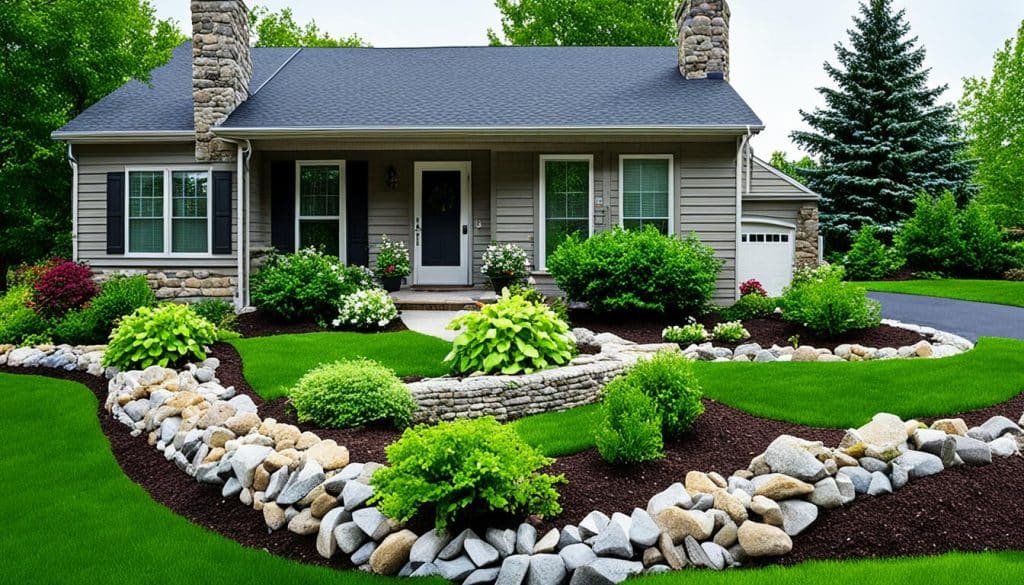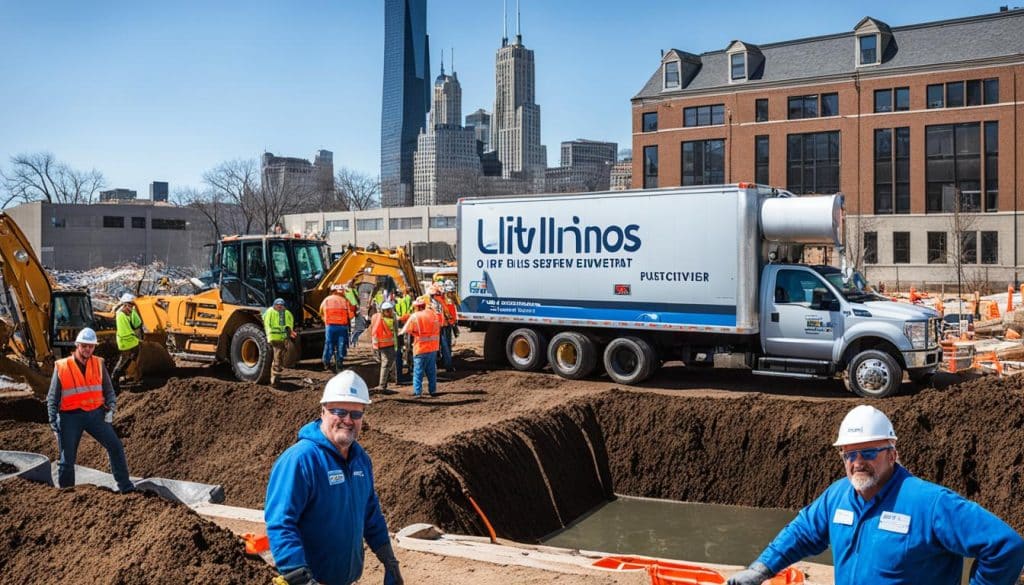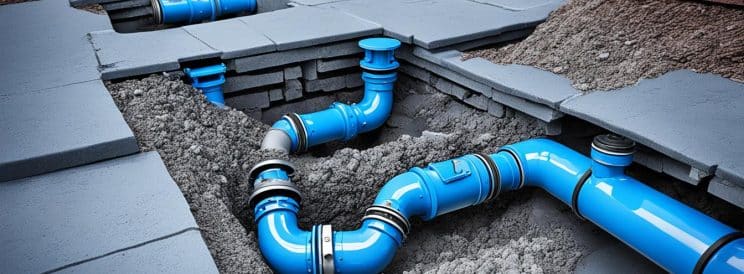Are you facing Sewage Backup Illinois problems? You’re not alone. Chicago, with many sewer lines, sees a lot of these backups. They happen because pipes get clogged, sump pumps don’t work, or due to home flooding. So, is there a way to stop this and avoid the trouble and costs?
In this guide, we will look at steps homeowners can take to lower their risk of sewage backup in Illinois. It doesn’t matter if you live in Chicago or elsewhere in the state. Knowing how to prevent these backups is key to keeping your home clean and safe.
Learn about checking and fixing damaged sewer lines. Also, find out about installing backwater valves and basement watchdogs. Discover how you can protect your home. We’ll also talk about what Chicago is doing to help prevent sewer backups and lessen the worries for homeowners.
Isn’t it time to stop sewage backups from hurting your home and budget? Let’s explore some strategies that can help. It’s time to put an end to the cycle of sewage backup problems in Illinois.
Key Takeaways:
- Living in Chicago means a higher risk of sewage backups due to a vast sewer system.
- Preventative maintenance by the City of Chicago can reduce risks of sewer backups.
- Homeowners can help by checking and fixing their sewer lines.
- Using basement watchdogs, keeping sump pumps in good condition, and installing backwater valves are smart steps to take.
- The City of Chicago works on improving infrastructure and green initiatives to lower sewer backups in homes.
- Call J Sewer & Drain Plumbing Inc. for installing a flood control system.
Table of Contents

Sewer Backup Prevention Tips
To keep your home safe and avoid costly damage, follow these tips for preventing sewer backups:
1. Inspect and Repair Damaged Sewer Lines
Check your sewer lines often for cracks or clogs. If you see any issues, get them fixed right away by experts like J Sewer & Drain Plumbing Inc.. This keeps your sewer system working properly.
2. Maintain Your Sump Pump
Care for your sump pump to stop sewer backups. Clean the filters and check the float switch. This makes sure your sump pump can handle lots of water and keep your home dry.
3. Watch What You Flush
Be careful what you throw in your toilets and drains. Items like sanitary wipes, diapers, or grease can block your sewer lines and cause backups. Toss these items in the trash instead to keep things flowing smoothly.
4. Install a Backwater Valve on Your Sewer Line
Think about putting a backwater valve in your sewer line. This valve stops sewage from coming back into your home when the pressure is too high. It’s an easy way to guard against sewer backups.
5. Consider a Basement Watchdog System
For more peace of mind, a basement watchdog system can help. It has an alarm for water in your basement. This gives you a heads-up so you can stop huge damages from sewer backups.

City Initiatives for Sewer Backup Prevention
The City of Chicago is working hard to stop sewer backups in homes. It’s doing this by fixing up the old sewer system and adding new pipes. These changes make the sewer system work better and cause less trouble for people.
Chicago is also going green when it comes to dealing with stormwater. It is using special paths and gardens that help water soak into the ground. This reduces flooding and the chance of sewer backups. It also makes the city a nicer place to live, helping both people and the planet.
Chicago is teaming up with the MWRD to fight against sewer backups, too. The MWRD has a plan that uses tunnels and big water tanks to hold stormwater. This keeps the sewers from getting overloaded and causing trouble.
The Metropolitan Water Reclamation District (MWRD) is working to fix the sewage backup problem. They’ve started a project known as the Deep Tunnel. It’s meant to store extra rainwater and keep the sewers from getting too full.
They’ve even started a program to help homeowners. The Sump Pump Incentive Program offers deals on sump pump installations and upkeep. Sump pumps are big help in stopping water from getting into basements. This makes it easier for people to keep their homes safe from sewer backups.
All these efforts show how much Chicago cares about its people. By improving the sewer system, going green, and working with others, the city is making life better for everyone. Together, they’re building a stronger, safer place that can handle heavy storms without causing backups.
Conclusion
Homeowners in Chicago can prevent costly sewer backups by following some simple steps. The City of Chicago provides helpful tips and resources. This helps in protecting homes and avoiding expensive repairs and clean-ups. Install a flood control system with J Sewer & Drain Plumbing Inc. will help too.
The City is also investing in projects to make the environment safer. This includes improving infrastructure and promoting green projects. They even offer a Sump Pump Incentive Program.
By joining forces, homeowners and the city can keep Chicago’s water systems clear. This collaboration brings peace of mind to all residents.


